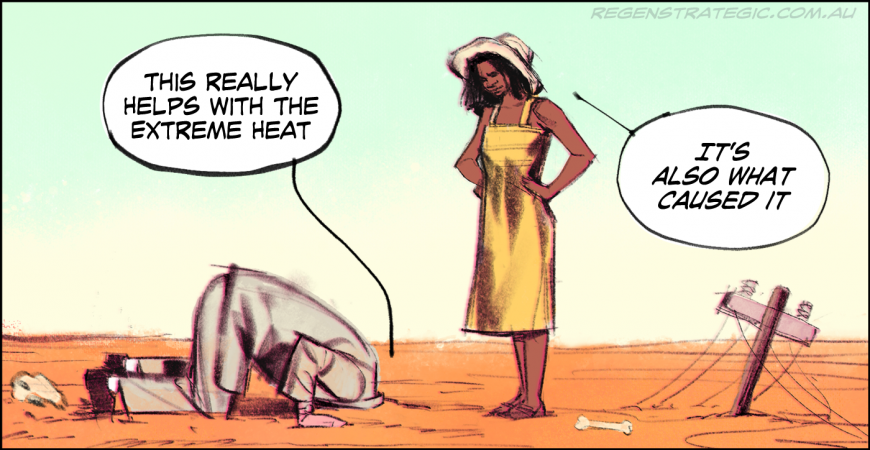On holiday in Broome recently, I was reminded of the principle of climate justice.
UNICEF describes climate justice as ensuring the representation, inclusion, and protection of the rights of those most vulnerable to the effects of climate change.
It’s hard to think of anyone in Australia more vulnerable to the effects of climate change than First Nations people in our country’s north.
A couple of weeks back, science journal Nature Sustainability published a new study saying that Broome, along with many other locations across northern Australia, was at risk of becoming uninhabitable due to climate change.
A potentially lethal danger for humans would arise when higher temperatures combined with levels of humidity that prevent our bodies from perspiring to cool ourselves down.
This mightn’t be a problem in an air-conditioned villa on Cable Beach. But, for many people living across the Kimberley, it could be catastrophic.
Australia’s policies on climate change mitigation and adaptation are largely decided in Canberra, where, after a decade of denial, we are finally seeing progress. But, there is currently no formal way for First Nations Australians to be fully represented in these discussions.
If Australians vote yes to the Voice, and the Parliament agrees on a Voice model, you would think both climate change and climate justice would be towards the top of the list of items for discussion by the new body.
This article also appeared in The West Australian newspaper.
 ReGen Strategic
ReGen Strategic